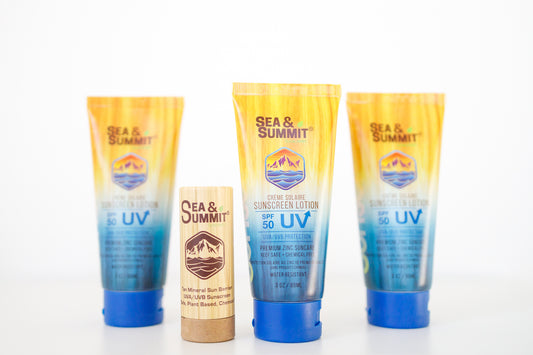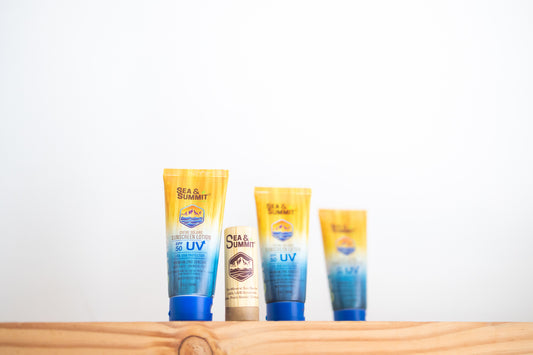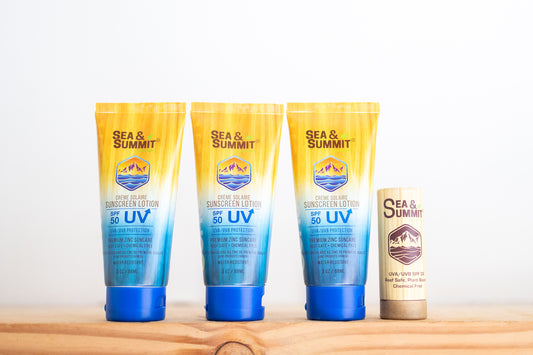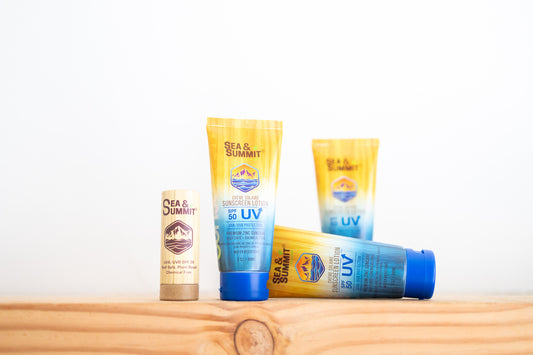
-
Value Pack: 3 Tubes SPF 50 Lotion (3oz) + 1 SPF 50 Stick | SPF 50 Sunscreen Lotion
5.0 / 5.0
(6) 6 total reviews
Regular price €66,06Regular price Sale price €66,06Unit price / perSold out -
Value Pack: 3 Tubes SPF 50 Lotion (3oz) + 1 SPF 36 Stick | SPF 36 Daily Clear Stick
5.0 / 5.0
(6) 6 total reviews
Regular price €66,06Regular price Sale price €66,06Unit price / perSold out

Let's get to the point
Questions from you

Difference between SPF 30 & 50?

An SPF 30 blocks around 96% of rays, while an SPF 50 blocks about 98%?
Here's the catch: those numbers alone don't give the full picture. Factors like skin type, time of day, UV index, environment, play, and our individual differences matter too!
We're all wonderfully unique, and our skin reacts differently to the sun. So, let's remember to consider these factors when choosing SPF and applying sunscreen. Stay informed, embrace your individuality, and keep your skin happy and healthy under the sun!

Mineral vs. Chemical sunscreen?

Mineral (blocks UV rays, healthy for you and the environment):
- zinc oxide
- titanium oxide
Chemical (absorbs UV rays, causes free radicals, endocrine disruption, harmful to marine life):
- Oxybenzone
- Octinoxate
- Homosalate
- Octocrylene
- Octisalate
- Avobenzone

Is Sea & Summit safe for my baby?

Absolutely! Rest assured, our sunscreen is formulated with the utmost care and consideration, meeting the highest safety standards for everyone in your family, including your four legged friends. So go ahead and protect your little one's skin without worry, knowing that our sunscreen is genuinely formulated to keep them safe and sound.

What ingredients are Reef Safe?

Reef-safe sunscreens are those that don't contain harmful chemicals like oxybenzone, octinoxate and the others listed above. Instead, look for mineral sunscreens that use zinc oxide and titanium dioxide as their active ingredients. These minerals create a protective barrier on your skin, reflecting and scattering those UV rays without posing a threat to our underwater friends.



